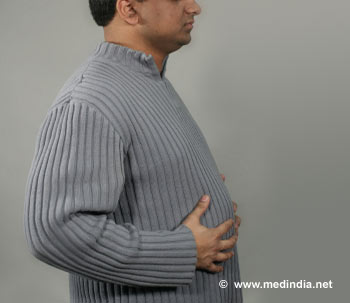About
Flatulence is a condition of having excessive gas in the stomach or intestine. This may cause a great deal of discomfort and may lead to other embarrassing symptoms like burping or belching.
The gas (flatus) formed in the stomach or intestine is a by-product of digestion.

The primary gases in flatus include nitrogen, hydrogen, carbon-di-oxide, oxygen and methane. The characteristic odor of flatus is attributed to the by- products of digestion including, sulphur compounds and certain bacteria present in the GI tract. The gases are produced in direct proportions to the bacteria present in the colon of the digestive tract, that helps to digest or ferment the undigested food that reaches the colon.
Flatulence is certainly no laughing matter; if it becomes a matter of concern then it must be discussed with your doctor.
Gas – A certain amount of gas is always present in the GI tract of everyone. A normal individual passes gas about ten times a day, on an average. If it exceeds this frequency, then it becomes a problem.
Bloating – Bloating is often thought to be due to excessive gas present in the stomach. But that is far from the truth as those who suffer from bloating usually have normal amounts of gases in their GI tract but experience a delay in emptying of the stomach.
Belching – A couple of belches may be common after a meal but continuous belching may occur if a person swallows too much air. Chronic belching may also be a sign of upper intestinal tract diseases, such as peptic ulcer or Gatroesophageal reflex disease (GERD).
Abdominal pain – Some individuals who suffer from flatulence confuse it with angina if the pain occurs on the left side.
Differential diagnosis:
Irritable bowel syndrome (IBS) – It is a common disorder of the GI tract characterized by abdominal pain, discomfort and flatulence.
Colonic diverticulosis - A diverticulum is a sac- like hernia formed through a point of weakness by the mucosal and submucosal layers of the colon wall. Most individuals with uncomplicated colonic diverticulosis do not exhibit any symptoms. A small group of the patients may have symptoms, such as bloating, flatulence, abdominal pain or altered bowel habits.
Psychogenic Aerophagia – This is a condition where the person suffers from flatulence due to a stress -related habit leading to an excessive swallowing of air.
Angina – Sometimes angina or pain in the left side which may be due to a heart disease, can be mistaken for flatulence, as the symptom is common in both the condition
Vaginal flatulence – Vaginal flatulence occurs in some women when there is an expulsion of air from the vagina during or after intercourse.
Frequently Asked Questions
1. Which specialist doctor should I consult if I have excessive Flatulence?
You will need to consult a Gastro-enterologist or a General Physician
2.What causes flatulence?
Swallowing air, eating certain types of foods like beans, improper digestion, impaired bowel movement and lactase deficiency are some of the main reasons for flatulence.
3.When should you seek medical help?
It is important to seek medical help when a person experiences change in bowel habits, diarrhea, blood in stool, constipation, vomiting nausea, abdominal pain or swelling.
4. How is flatulence treated?
Flatulence is treated with antibiotics if unfavorable bacteria cause the flatulence. Medications that improve bowel movement are also administered, in case of constipation.
5.How is flatulence managed?
Flatus is present in everyone. However, the excess of intestinal gases can be bothersome and can be controlled, to a large extent, by closely monitoring the food that is consumed. High fat food must be avoided in those suffering from flatulence. If lactose intolerance occurs in a flatulent individual then milk (and milk products) must be avoided. If odor is of concern, then undergarments with charcoal filters can be put to use.









